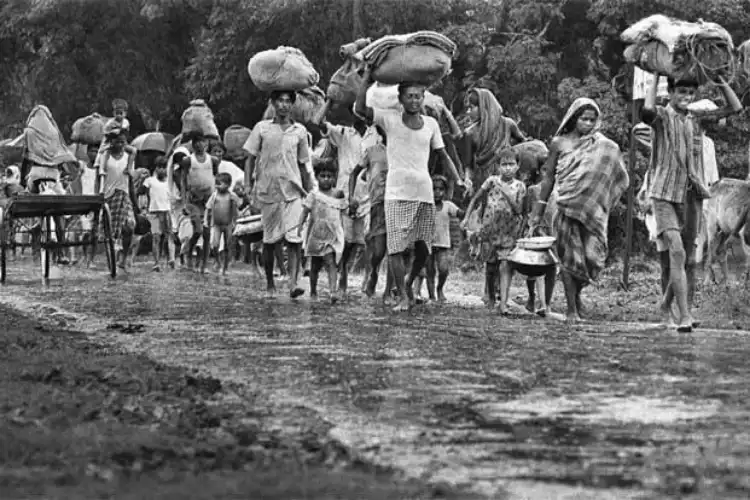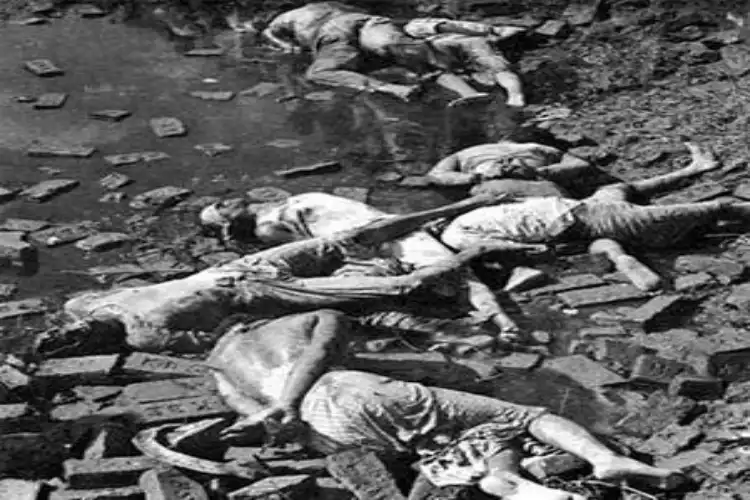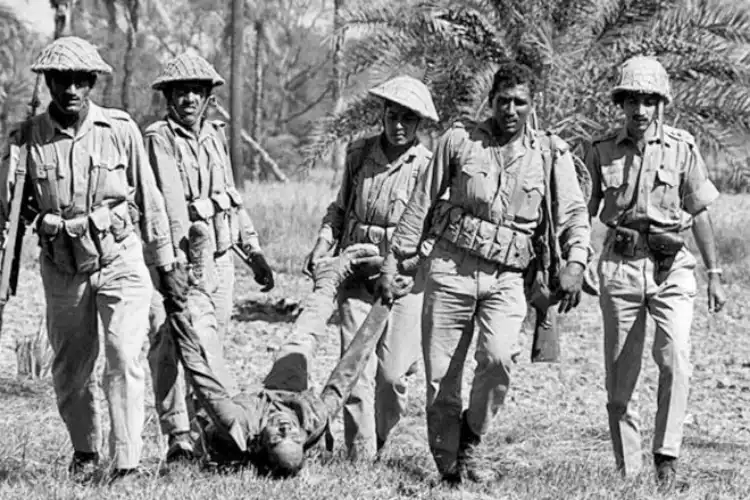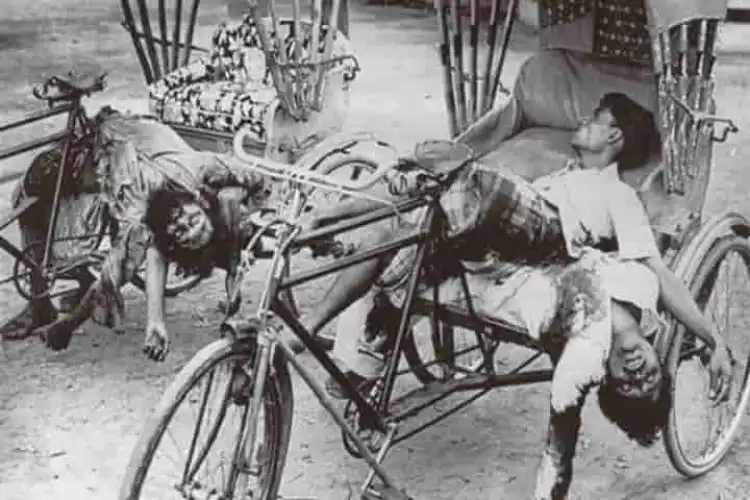Saquib Salim
"The troops used to say that when the Commander was a rapist, how could they be stopped?” This is the remark made by Lt. Col. Aziz Ahmad Khan of Pakistan Army in front of the Hamoodur Rahman Commission, appointed by the Government of Pakistan to look into the reasons behind the defeat of the Pakistan Army at the hands of the Indian Army in 1971.
The three-member commission, appointed in December 1971, was headed by the Chief Justice of Pakistan, Justice Hamoodur Rahman. The report was submitted in two parts, the first one was prepared before the release of 90,000 Pakistani Prisoners of War (PoWs), and the second after examining the released PoWs in 1974.
The report, with all its flaws and political motives, should be made a must-read to all those the tyrants of the world who use nationalism and religion to oppress people. It lays bare the oppressive nature of the Pakistan Army. The Army of a nation that claimed to be the flag bearer of Islam, killed, looted, and raped millions of Bengali Muslims for years with complete impunity.
Bodies of East Pakistani people killed by Pakistan Army
The statements of witnesses present a horrifying picture.
The report claims that the real army brutalities started in the night between 25 and 26 March 1971, when the negotiations between the Awami League-led by Bengali leader Mujibur Rahman and the Pakistan Government broke down. That night, at 1 am, when the students of Dhaka University were sleeping in their hostels, the army attacked them with mortars. Brigadier Shah Abdul Qasim told the commission, "no pitched battle was fought on the 25th of March in Dacca. Excessive force was used on that night. Army personnel acted under the influence of revenge and anger during the military operation."
The commission noted that there was evidence that the shops and homes of Bengalis were broken into and looted. On the very first day of taking over the command, Lt. Gen. Nizai asked his troops, “What have I been hearing about the shortage of rations? Are not there any cows and goats in this country? This is enemy territory. Get what you want. This is what we used to do in Burma."
Pakistani Armymen disposing of a body during the genocide
Major General Farman Ali recorded this statement in front of the commission as evidence that orders to loot were from the very top. Lt. Col. Bukhari claimed that there were written orders to the soldiers asking them to plunder the Bengali civilians. Almost all of the Pakistan Army officers accepted that they were indulged in loot, rape, and genocide. Before the commission, they blamed each other.
Niazi blamed Tikka Khan saying, “damage done during those early days of the military action could never be repaired, and earned for the military leaders' names such as ‘Changez Khan’ and ‘Butcher of East Pakistan’………. within four days of my command, I addressed a letter to all formations located in the area and insisted that loot, rape, arson, killing of people at random must stop and a high standard of discipline should be maintained. I came to know that looted material had been sent to West Pakistan which included cars, refrigerators and air conditioners etc." While shifting the blame Niazi accepted that genocide was carried out by his army. He further claimed that several Bengali army, or police, personnel were killed in cold blood.
Also Read: Bangladeshi veteran who survived Pak army's bullets looks forward to Modi’s visit
The commission raised questions over the sexual conduct of Pakistan officials including President General Yahya Khan and Lt. Gen. Niazi. The report claimed that the army commanders were fond of young girls, prostitutes and handed in gloves with the people who ran prostitution rackets in Pakistan. It was noted by the commission that “there is some evidence to suggest that the words and personal actions of Lt. Gen. Niazi were calculated to encourage the killings and rape.”
Maj. Gen Rao Barman Ali testified, "Harrowing tales of rape, loot, arson, harassment, and of insulting and degrading behaviour (by Pakistan Army) were narrated in general terms” Niazi also accepted that the rapes by the army were reported to him and claims to have acted against the rapists. As usual, there was no evidence of such actions. The commission, in a face-saving act, claimed that while the Pakistan Army raped women, the Mukti Bahini nationalist guerrillas raped more women to blame the army later on. It was a desperate attempt to whitewash the war crimes of the Pakistan army.
Most shamelessly, Niazi accepted his troops raped women and yet told the commission that, “these things do happen when troops are spread over.”
Maj. Gen. Husain Shah admitted, "there were rumors that Bengalis were disposed of without trial." Another officer, Lt. Col. Bukhari testified, "in Rangpur two officers and 30 men were disposed off without trial. It may have happened in other stations as well." Lt. Col. Naeem accepted that "innocent people were killed by us (Pakistan Army) during sweep operations.”
Horrfying images of genocide in Bangladesh
The officers testified that ‘sent to Bangladesh’ was a code name used by the army to kill any suspected member of the Awami League or Mukti Bahini without trial. These massacres were carried out without any detailed orders. The commission noted that the Comilla Cantonment massacre on 27 March 1971, where Lt. Gen. Yakub Malik oversaw the killing of 17 Bengali officers and 915 civilians was just one of much such genocide.
The commission noted, “there was a general feeling of hatred against Bengalis amongst the soldiers and officers including Generals. There were verbal instructions to eliminate Hindus.”
What the Pakistan army was up to can be gauged by the statement recorded by Lt. Col. Aziz Ahmed Khan, “"Brigadier Arbbab also told me to destroy all houses in Joydebpur. To a great extent, I executed this order. General Niazi visited my unit at Thakurgaon and Bogra. He asked us how many Hindus we had killed. In May, there was an order in writing to kill Hindus. This order was from Brigadier Abdullah Malik of 23 Brigade."
The commission found that the army moved ruthlessly, killing, burning, and destroying everything that came in its way. The life, property, and honour of even the highly placed Bengalis were not safe at that time. The officers testified that any man could be killed without evidence by the army, houses were looted, women were raped and Bengalis were made aliens in their homeland.
Though it tried hard to suppress the figures and shifted the blame to a few officers like Yahya and Niazi, the Commission accepted that the Pakistan army with the full support of the state-backed media and intellectuals carried out one of the bloodiest genocides of Bengalis. The report is an official document that admits its Army looted, killed, and raped a large Muslim in the name of Islam. They have shamed the religion the country wants to be leaders of.
It is high time that tyrants in general and Pakistan in particular start taking lessons from the liberation of Bangladesh.
(Saquib Salim is a writer and a historian)




